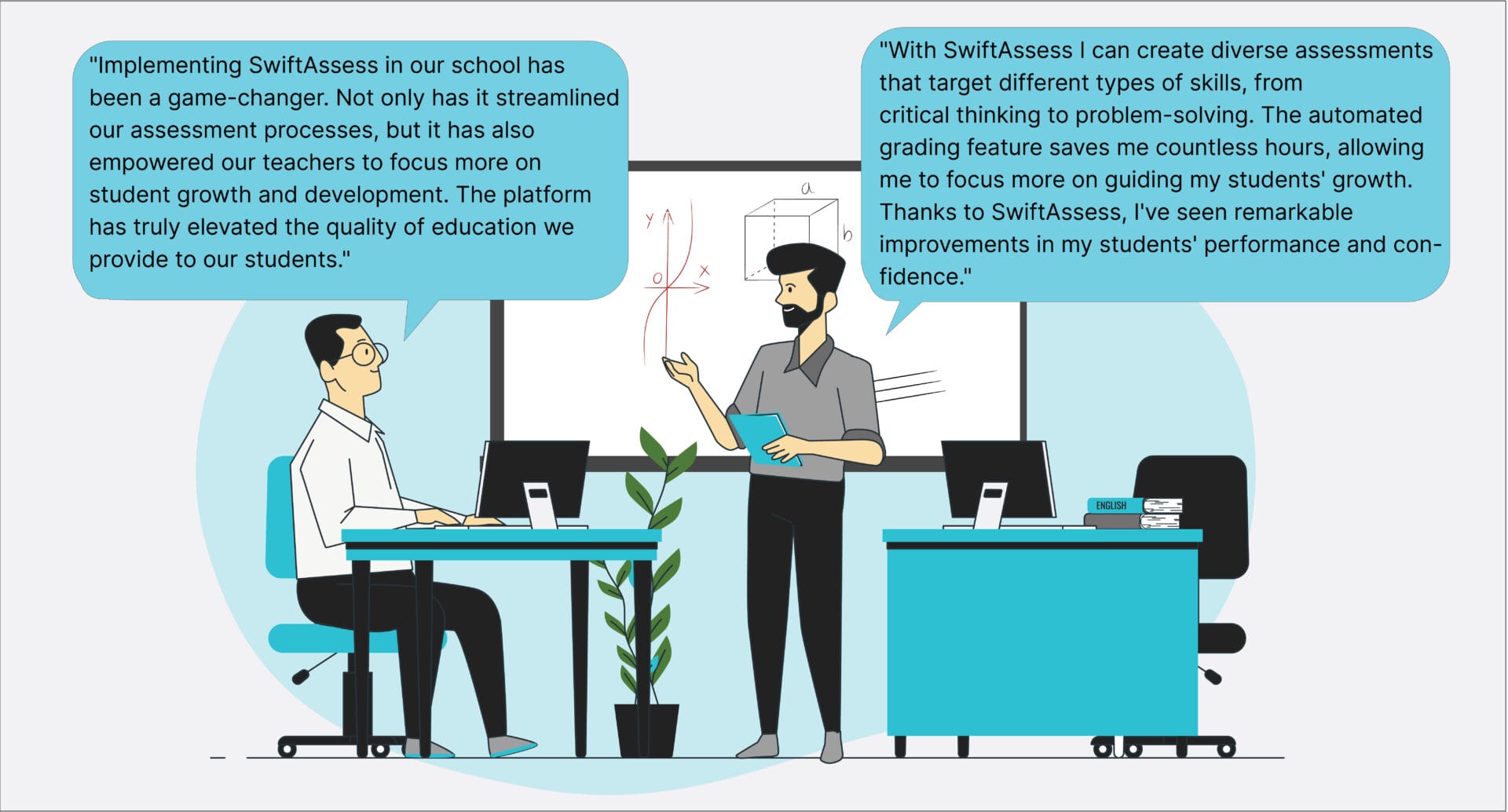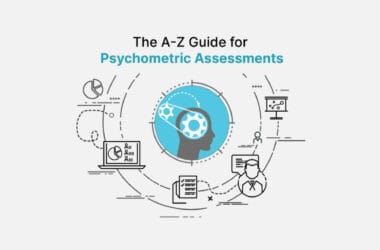Anticipated student growth and assessment serve as integral components of effective teaching strategies. It’s commonly expected that students will accumulate a year’s worth of new knowledge for every year they spend in school. However, when it comes to evaluating students, particularly in online learning environments, a key question arises: should our focus be on measuring growth or achievement?
Assessing student achievement requires evaluating their understanding of content and meeting the standards set for their grade level within a specific academic year. This often involves measuring progress against state-mandated standards through standardized testing, providing a snapshot of students’ performance at a particular moment. While these assessments provide valuable information, they may not fully capture students’ accomplishments and challenges.
Despite discussions with content-area teachers and analysis of benchmarks indicating areas of weakness offer insights, they may not present a comprehensive view of student progress. These assessments, conducted at a single point in time, may fail to account for factors like test anxiety or the stifling effect of standardized test formats on students’ creative expression.
Contents
Measuring Growth: A Comprehensive Approach
Measuring growth shifts the focus from standardized testing criteria and inter-student comparisons to tracking individual students’ progress over time. This approach offers several advantages:
- Student-Centered Assessments: Growth assessment enables teachers to tailor assessments to individual student needs, allowing for flexibility in evaluating progress year over year. By moving away from rigid state mandates, teachers can leverage students’ strengths and design assessments that truly reflect their growth. Activities such as class debates, projects, or portfolios provide valuable insights into students’ learning journeys, offering a more nuanced understanding than standardized tests.
- Depth of Knowledge Testing: Growth assessment empowers teachers to delve deeper into student understanding and application of concepts beyond standard testing formats. Students are challenged to think critically and apply their knowledge to real-world scenarios, fostering skills such as collaboration and resilience that are essential for success beyond the classroom. By incorporating thought-provoking questions and opportunities for self-reflection, teachers gain a clearer picture of students’ progress and areas for improvement.
- Fostering Boundless Growth: Embracing a growth-focused approach to assessment liberates teachers and students from the constraints of traditional classroom settings. Learning becomes a dynamic process that extends beyond physical classrooms, with opportunities for peer review, hands-on projects, and self-directed learning experiences. By promoting a growth mindset in students, educators encourage lifelong learning and empower students to take ownership of their educational journey, regardless of the learning environment.
Enhancing Student Skills
Understanding Different Types of Skills
Before delving into assessment strategies, it’s crucial to capture the various types of skills students need to develop:
- Literacy Skills: include reading, writing, listening, and speaking abilities. They form the foundation for effective communication and comprehension across all subjects.
- Critical Thinking: involves analyzing information, evaluating arguments, and forming reasoned judgments. Critical thinkers are adept at problem-solving and decision-making in diverse contexts.
- Problem-Solving Skills: Students with strong problem-solving skills can identify, analyze, and solve complex issues creatively. These skills are essential for success in both academic and real-world scenarios.
Utilizing Diverse Question Types
Assessment tasks play a pivotal role in measuring students’ skills and understanding. By employing diverse question types, educators can assess different aspects of learning:
- Multiple Choice: Ideal for testing factual knowledge and understanding of concepts.
- Short Answer/Problem-Solving: Assesses students’ ability to apply knowledge to solve problems or answer questions succinctly.
- Essay/Long Answer: Allows students to demonstrate deeper understanding, critical thinking, and analytical skills.
Creating advanced questions that test active learning and high-order thinking skills involves incorporating interactive and engaging elements that go beyond traditional multiple-choice or short-answer formats.
Technologically Enhanced Items (TEIs) represent a category of advanced question types designed to elevate the assessment experience. Unlike traditional question formats, TEIs incorporate innovative question types such as:
- Matching Questions: require students to pair items from two columns based on their relationship or relevance.
- Hotspot Questions: involve students clicking on specific areas of an image to answer a question, promoting spatial reasoning and application of knowledge.
- Drag and drop questions: require students to move items to correct locations or into categories, encouraging active engagement and higher-order classification skills.
By integrating these advanced question types into assessments, educators can promote active learning, enhance engagement, and effectively evaluate students’ higher-order thinking skills.
Employing Effective Assessment Techniques
Effective assessment goes beyond merely testing knowledge, it provides valuable insights into students’ strengths and areas for improvement. SwiftAssess covers all the assessment stages from administering to analyzing assessments:
- Personalized Feedback: The platform enables educators to provide personalized feedback tailored to individual student needs, fostering a supportive learning environment.
- Standardized Marking Techniques: Utilizing rubrics ensures consistency and transparency in grading. Rubrics outline specific criteria for assessment, making it easier for students to understand expectations and for educators to provide constructive feedback.
- AI-Powered Grading: SwiftAssess leverages AI to provide deep insights into student performance. From automated rubric grading to detailed feedback on open-ended questions, AI streamlines the grading process, allowing educators to focus more on facilitating student growth.
Enhancing Teaching Effectiveness
By incorporating these strategies into teaching practices, educators can create a more engaging and effective learning experience:

- Aligning Learning Outcomes with Bloom’s Taxonomy: Mapping learning outcomes to Bloom’s Taxonomy helps educators design assessments that target different levels of cognitive complexity, promoting holistic skill development.
- Promoting Student Growth: SwiftAssess empowers educators to track students’ progress over time, identify areas for improvement, and tailor instruction accordingly.
- Maximizing Teacher Efficiency: Educators have more time and energy to focus on facilitating meaningful learning experiences, building relationships with students, and providing individualized support while leveraging a dedicated assessment management platform.
SwiftAssess analytics holds significant power in reflecting on students’ growth due to its ability to gather, analyze, and interpret vast amounts of data related to their learning journey. Here’s how it can be powerful:
Data-Driven Insights: SwiftAssess analytics can provide educators with detailed insights into each student’s progress, including areas of strength and weakness. By analyzing trends and patterns in student performance, teachers can tailor instruction to meet individual learning needs more effectively.
Real-Time Feedback: With SwiftAssess, educators can access real-time data on student performance, allowing for immediate feedback and intervention when necessary. This timely feedback enables students to address misconceptions or gaps in understanding quickly, promoting continuous improvement.
Personalized Learning: By leveraging SwiftAssess analytics, teachers can personalize learning experiences for each student based on their unique learning styles, preferences, and abilities. This personalization fosters engagement and motivation, leading to enhanced learning outcomes.
Progress Tracking: SwiftAssess analytics enable comprehensive tracking of student progress over time. Educators can monitor growth longitudinally, identifying areas of improvement and celebrating milestones achieved. This tracking also facilitates communication with students, parents, and stakeholders regarding progress toward learning goals.
Targeted Interventions: Through data analysis, SwiftAssess can identify students who may be at risk of falling behind or who require additional support. Educators can then implement targeted interventions to address specific learning needs, ensuring that no student is left behind.
Curriculum Enhancement: Analyzing student data can also inform curriculum development and refinement. By identifying concepts or skills that students struggle with consistently, educators can adjust instructional strategies or modify curriculum content to better meet student needs.
Evidence-Based Decision Making: SwiftAssess analytics empowers educators to make evidence-based decisions regarding instructional practices, resource allocation, and policy development. By relying on data rather than intuition alone, educators can ensure that their actions are informed and effective.

Fostering Growth Through Adaptive Assessments
Imagine an institution noticing a concerning trend of students prioritizing grades over genuine learning. Traditional assessments often promote memorization rather than critical thinking skills.
By leveraging a dedicated assessment management platform such as SwiftAssess instead of static tests, students can dynamically generate questions tailored to their individual proficiency levels. This encourages deeper engagement with the material and discourages rote memorization.
As a result, student feedback reveals a significant shift in mindset. Students focus on understanding concepts rather than memorizing facts. Moreover, instructors observe a marked improvement in student performance and a decrease in instances of cheating as students feel more confident in their understanding of the material.
Enhancing Students’ Progress with Generative AI and Digital Twins
Leveraging generative AI and digital twins enables two-way feedback and analytics, which significantly enhance support for teachers. Generative AI can analyze huge amounts of data to identify patterns and insights about student performance, preferences, and areas needing improvement. This analysis provides teachers with actionable feedback, helping them adjust their instructional strategies in real time to better meet individual student needs.
Digital twins, which create virtual replicas of physical entities, offer a groundbreaking approach to education. In the context of learning, a digital twin can model a student’s academic progress, learning behaviors, and emotional responses. This virtual model allows for continuous monitoring and analysis, providing detailed feedback to students and teachers. For instance, if a student struggles with a particular concept, the digital twin can simulate various instructional approaches, predicting which methods might be most effective for that student. This enables a highly personalized learning experience, tailored to the unique needs and learning styles of each student.
Moreover, digital twins can facilitate predictive analytics, helping educators foresee potential challenges and act proactively. By leveraging these advanced technologies, SwiftAssess offers a dynamic and responsive educational environment, where learning is continuously adapted based on real-time data.
The integration of generative AI and digital twins not only supports customized learning but also brings a transformative impact on educational sector.
SwiftAssess stands as a trusted partner in leveraging tools and methodologies that embrace students growth. As the platform integrates advanced technologies, it creates a dynamic and responsive educational environment where learning is tailored to individual student needs.





